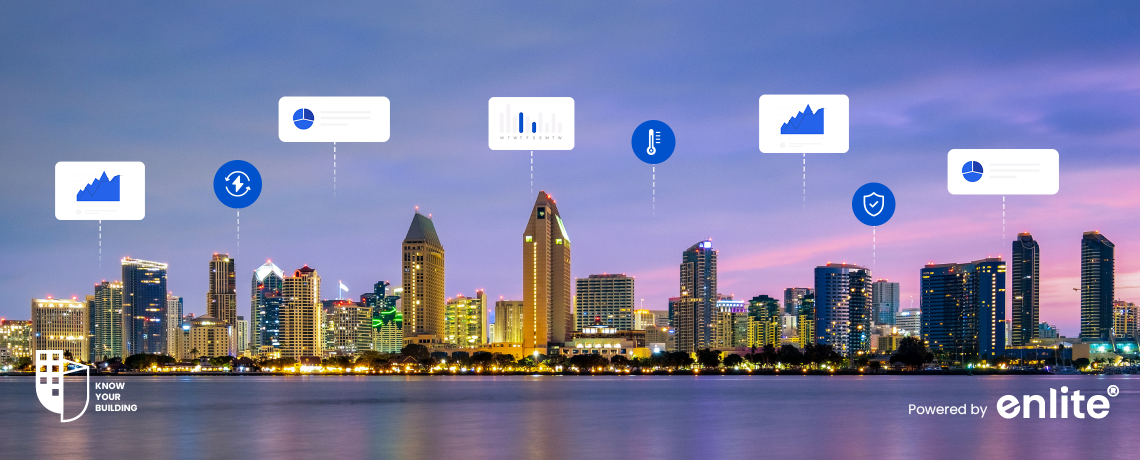Table of Contents
ToggleIn an era where climate change and sustainability are at the forefront, conserving water has become crucial for businesses and organizations worldwide. Smart buildings, equipped with advanced building management systems (BMS), are at the cutting edge of this movement, using technology to monitor, manage, and reduce water consumption. For commercial real estate professionals, water conservation isn’t just a sustainable choice—it’s a strategic, cost-effective solution that improves operational efficiency and aligns with green building standards.
Why Water Conservation Matters in Smart Buildings
Water conservation in commercial buildings goes beyond simply using less water; it involves systematic approaches to monitor, recycle, and optimize water usage. With populations growing and water resources dwindling, commercial buildings—especially those in urban environments—are major consumers of water, often for HVAC systems, landscaping, sanitation, and cooling towers. The integration of smart building technology provides an opportunity to drastically reduce water waste while maintaining a building’s operational needs.
Key Technologies Enabling Water Conservation in Smart Buildings
- Automated Leak Detection Systems
One of the most significant ways smart buildings help conserve water is through real-time leak detection. Leaks, if undetected, can lead to severe water wastage and high repair costs. Automated systems can identify leaks instantly and alert building managers to take prompt action. Some advanced systems even offer predictive analytics, spotting potential issues before they escalate into costly problems. - IoT-Enabled Water Flow Monitoring
Internet of Things (IoT) devices provide detailed insights into water flow and usage across various parts of a building. By tracking usage patterns, these sensors allow building managers to identify trends, optimize water consumption, and highlight areas where water might be saved. For instance, IoT-enabled faucets and toilets reduce unnecessary water flow, making them ideal for public spaces in commercial buildings. - Greywater Recycling Systems
Greywater recycling allows buildings to reuse wastewater from sinks, showers, and other non-potable sources for landscaping or cooling systems. This recycled water can reduce the need for freshwater in many applications, offering significant savings in water usage and costs. By integrating greywater recycling systems with BMS, building managers can monitor the efficiency of these systems and ensure they run optimally. - Smart Irrigation Systems
Landscaping in commercial buildings often requires a lot of water, especially in climates with limited rainfall. Smart irrigation systems use weather data, soil moisture sensors, and historical watering patterns to provide the exact amount of water needed. This approach avoids overwatering, which conserves water while still keeping green spaces lush and attractive. - Automated Cooling Tower Management
Cooling towers are some of the biggest water consumers in commercial buildings. Through smart management systems, cooling towers can optimize water usage by adjusting operations based on real-time temperature and humidity data. This reduces water consumption without compromising on the building’s climate control needs.
Benefits of Water Conservation in Smart Buildings
- Reduced Operating Costs
By reducing water consumption, smart buildings can significantly lower operating expenses. For commercial properties, this reduction translates to lower utility bills, reduced maintenance costs due to leak prevention, and lower costs associated with equipment repairs. - Enhanced Sustainability and Green Building Certifications
Conserving water through smart building technology contributes to achieving green certifications such as LEED (Leadership in Energy and Environmental Design) and WELL Building Standards. These certifications boost property value, enhance the building’s reputation, and attract eco-conscious tenants and investors. - Data-Driven Insights for Long-Term Efficiency
Smart buildings provide actionable data on water usage trends, which allows facility managers to make informed decisions. These insights help set long-term conservation goals, measure progress, and implement water-saving initiatives that would otherwise be difficult to quantify and manage. - Positive Environmental Impact
Every gallon of water saved contributes to reducing strain on local water supplies and preserving resources for future generations. Smart buildings, by conserving water, actively contribute to a sustainable future, helping mitigate the environmental impact of urbanization.
Implementing Water Conservation Strategies in Your Building
- Invest in a Robust BMS: A high-quality Building Management System with IoT capabilities can integrate various water-saving technologies under a single, centralized control.
- Engage with Sustainability Consultants: Working with consultants who specialize in sustainable practices can help identify specific areas where water conservation can be improved.
- Educate and Engage Occupants: Tenant awareness is a significant factor in water conservation. Encourage tenants and staff to adopt water-saving practices, and keep them informed about the building’s conservation efforts.
- Conduct Regular Audits: Periodic water audits can help track progress, detect any inefficiencies, and identify further areas for improvement.
The Future of Water Conservation in Smart Buildings
As technology advances, the future of water conservation in smart buildings looks promising. AI-driven predictive analytics, enhanced IoT capabilities, and more efficient water recycling methods are expected to continue revolutionizing how commercial properties manage water resources. By embracing these technologies, building managers can make meaningful contributions to water conservation while supporting operational efficiency.
Final Thoughts
Smart buildings have the potential to reshape water conservation for the commercial real estate sector, providing sustainable, efficient, and economically viable solutions. As real estate professionals, staying ahead in the adoption of these technologies not only supports a greener planet but also creates a future-ready, resilient infrastructure that attracts forward-thinking tenants and investors.
By harnessing smart building technology, we are paving the way toward a sustainable future—one that balances the demands of growth with the need for responsible resource management.














